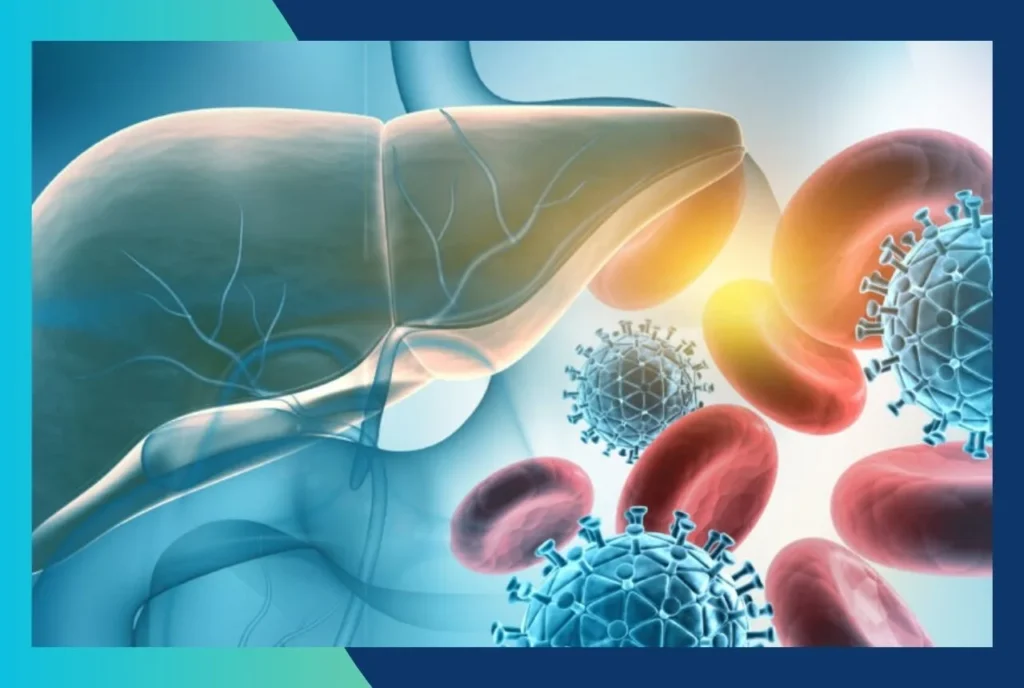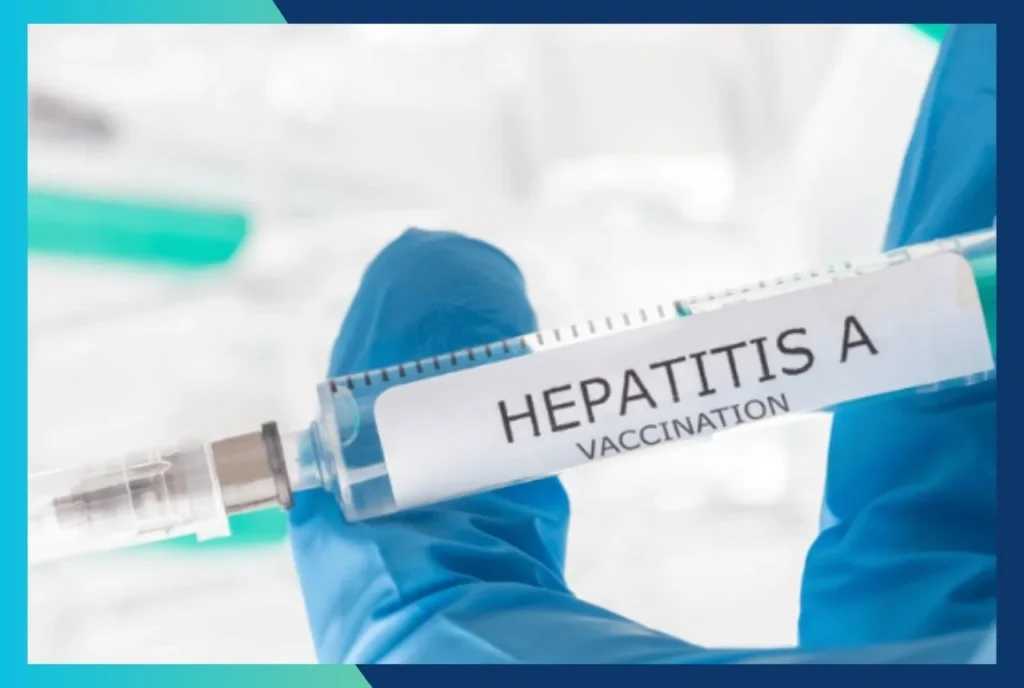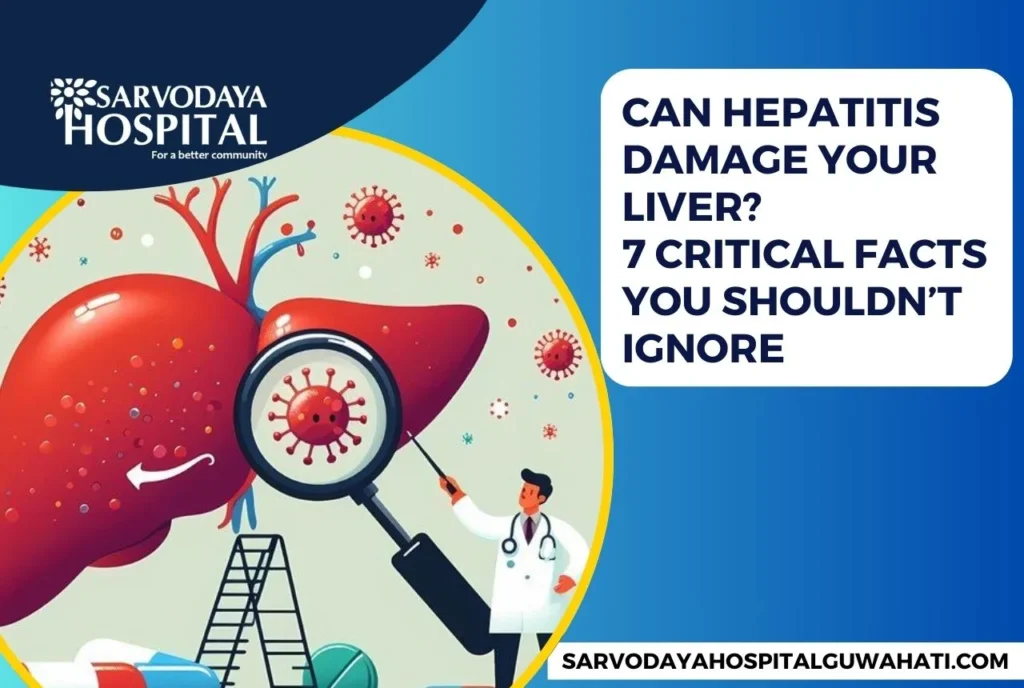How hepatitis can damage your liver? The short answer is yes, and the implications can be serious if left untreated. Hepatitis refers to inflammation of the liver caused by viral infections, excessive alcohol consumption, exposure to certain toxins, or autoimmune disorders.
This condition is more common than many people realize. Over 350 million individuals around the world live with chronic hepatitis B or C. The liver is a vital organ that filters toxins from the bloodstream, aids digestion, stores nutrients, and produces essential proteins. When it becomes inflamed or damaged, these crucial functions are disrupted.
World Hepatitis Day, observed annually on July 28, aims to raise awareness, promote testing and vaccination, and encourage global efforts to eliminate hepatitis as a public health threat. Understanding how hepatitis affects your liver is the first step toward prevention and treatment.
Hepatitis Can Be Acute or Chronic
Hepatitis may be categorized as acute or chronic, depending on how long the inflammation lasts.
- Acute hepatitis typically lasts less than six months. It is often caused by hepatitis A or E viruses and may resolve on its own without long-term damage.
- Chronic hepatitis persists for more than six months. It is most commonly linked to hepatitis B or C and has a higher risk of causing long-term liver complications.
The early stages of both types may be symptom-free. This silent progression raises the question again: how hepatitis can damage your liver without any warning signs? The answer is yes, particularly in chronic cases where liver damage continues over time without noticeable symptoms.
Different Types of Hepatitis Affect the Liver Differently
The severity of liver damage depends on the type of hepatitis infection.
- Hepatitis A is usually spread through contaminated food or water. It causes an acute infection and rarely results in lasting liver harm.
- Hepatitis B spreads through blood contact, sexual activity, or from mother to child. It may become chronic and can eventually lead to cirrhosis or liver cancer.
- Hepatitis C is a bloodborne virus that often becomes chronic. It may cause significant liver damage even when symptoms are not present.
- Hepatitis D only occurs in people already infected with hepatitis B. It often intensifies the damage caused by the initial infection.
- Hepatitis E is primarily waterborne and usually acute, but it can be dangerous, especially for pregnant women.
Each type poses different risks, but they all prompt the same concern: how hepatitis can damage your liver in the long run? Without proper care, the consequences can be severe.

Chronic Hepatitis Can Lead to Cirrhosis and Liver Cancer
When hepatitis becomes chronic, it can slowly scar the liver. This scarring, known as fibrosis, can progress to cirrhosis, where the liver becomes permanently damaged.
Cirrhosis affects liver function and may lead to complications such as liver failure, internal bleeding, and hepatocellular carcinoma, a common form of liver cancer. In fact, chronic hepatitis is a major cause of liver transplants worldwide.
How hepatitis can damage your liver to the point of needing a transplant? Unfortunately, yes. However, with early detection and effective treatment, many of these outcomes can be prevented or managed successfully.
Vaccines Can Prevent Hepatitis A and B
Prevention through vaccination is one of the most effective strategies to stop the spread and impact of hepatitis.
- The hepatitis A vaccine is given in a two-dose series and is recommended for children, travelers, and individuals with liver disease.
- The hepatitis B vaccine is part of routine childhood immunization in many countries and consists of three doses. It provides strong protection against chronic infection.
Currently, there are no approved vaccines for hepatitis C, D, or E. This makes education and safe practices especially important. Asking yourself, can hepatitis damage your liver, is a good reason to consider vaccination if you fall into an at-risk group.

Hepatitis B and C Can Be Treated or Managed
Thanks to medical advancements, hepatitis B and C are no longer the untreatable conditions they once were.
- For hepatitis B, there is no definitive cure yet, but long-term antiviral medications can control the virus and reduce the risk of liver damage.
- Hepatitis C is now curable in most cases with Direct-Acting Antivirals (DAAs), which are typically taken for 8 to 12 weeks.
In addition to medications, lifestyle choices matter. Avoiding alcohol, maintaining a healthy weight, and getting regular liver function tests can greatly support treatment. Can hepatitis damage your liver if you follow your treatment plan? The risk is significantly lowered, especially when care is started early.
Why World Hepatitis Day Matters
World Hepatitis Day is observed every year on July 28 in honor of Dr. Baruch Blumberg, the scientist who discovered the hepatitis B virus and developed its vaccine.
Each year, the World Health Organization promotes themes such as “We’re Not Waiting” or “Find the Missing Millions” to urge communities and governments to act. The campaign encourages more people to get tested, get vaccinated, and seek treatment. Many individuals are unaware that they are infected until severe damage has occurred.
Can hepatitis damage your liver without you knowing? Absolutely. That is why this awareness day plays such an important role in early detection and education.

Conclusion: Protect Your Liver, Protect Your Life
So, how hepatitis can damage your liver? Yes, but the good news is that hepatitis is preventable, manageable, and in some cases, even curable.
If left unchecked, hepatitis can lead to cirrhosis, liver failure, or cancer. But when detected early and treated appropriately, many people go on to live healthy, full lives.
On this World Hepatitis Day, take action. Get tested. Get vaccinated if you are eligible. Talk to a healthcare provider, especially if you are at risk. Encouraging routine liver health checks and public awareness is key to building a hepatitis-free future.


